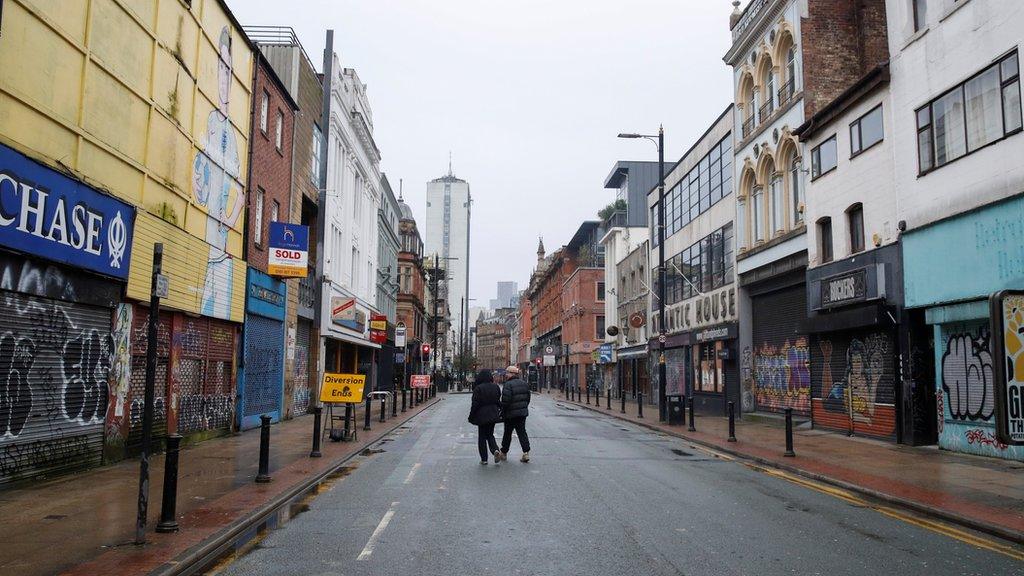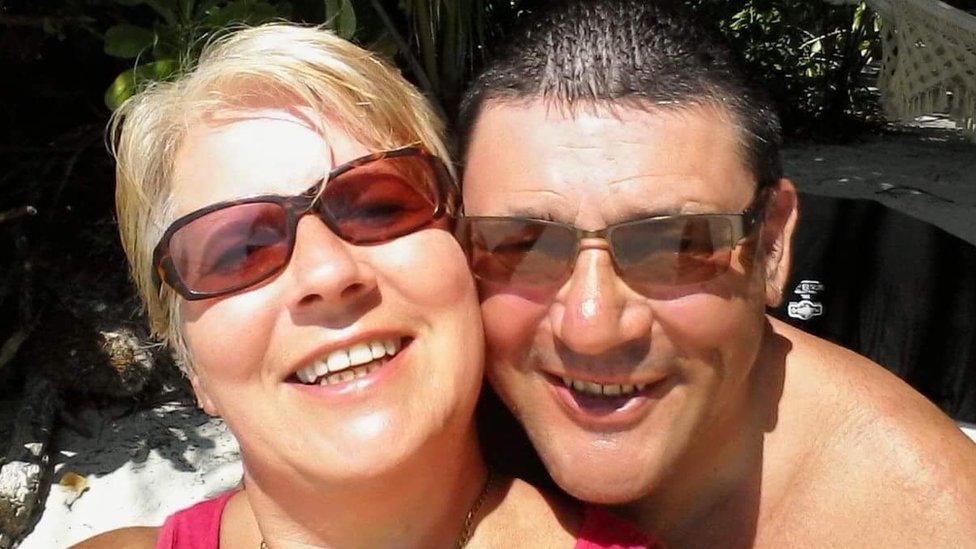Self-employed grants: What help is available and when can you apply?
- Published

More help for the self-employed has been announced in the Budget, with grants available until the end of September.
These will be the first payments available to an estimated 600,000 people who missed out on earlier support because they couldn't demonstrate their self-employed status on their tax return.
Previous claimants will also be able to apply.
What will the new help be?
Two further payments will be available for self-employed people struggling to work because of coronavirus.
These represent the fourth and fifth grants paid out by the Coronavirus Self Employed Income Support Scheme (SEISS), external.
The fourth covers the three-month period from February until the end of April. As with two of the previous SEISS grants, it is worth up to 80% of trading profits, averaged over three months, up to £7,500 in total.

The fifth grant covers May to the end of September, but the amount available depends on loss of income.
Workers whose turnover has fallen by at least 30% can still apply for a grant for up to 80% of profits, up to a value of £7,500 in total.
Those whose income has fallen by less than that can apply for up to 30% of trading profits capped at £2,850.
Claims can be made from next month for the fourth grant. Claims for the fifth grant will open in July.
Who is eligible for the new payments?
Nearly a fifth of self-employed people - 600,000 people - missed out on previous grants. That's because they had only recently started working for themselves, and so could not prove their income status on their tax return.

But those who completed tax returns for the 2019-2020 financial year will qualify for these new payments, provided they filed their return by midnight on 2 March 2021.
However, self-employed people who pay themselves a salary and dividends through their own company are still not covered by the scheme. (Although they will have some of their salary covered by job retention schemes if they operate through PAYE).
As a result, an estimated 18% of those for whom self-employment makes up most of their income have been ineligible for SEISS grants, according to the Institute for Fiscal Studies.
What help have the self-employed received so far?
The chancellor's first package of measures were unveiled in March last year.
If they suffered any loss in income, people who were self-employed or in partnerships were paid a taxable grant worth 80% of their profits, up to £2,500 per month.
Help was initially given as one lump-sum payment to cover three months, and businesses have also been able to apply to banks for government-backed support loans.
"I'm devastated that I have been penalised because of my husband's death"
Who is eligible?
More than half of a claimant's income needs to come from self-employment.
The schemes have been open to those with a trading profit of less than £50,000 in 2018-19, or an average trading profit of less than £50,000 from 2016-17, 2017-18 and 2018-19.
The government's help comes on top of extended delays for tax payments through the self-assessment system. Payment plans can be set up, giving people more time to pay their full tax bill up to January 2022.
Those with the lowest income are in line to receive more generous benefits payments compared with before the crisis.
How do I claim the help?
This is how it has worked:
HMRC uses existing information to identify those eligible and invite applications
The application requires people to confirm they meet the eligibility requirements
It will be paid straight into a bank account, which eligible taxpayers need to confirm on their application form
How many people are self-employed?
There are more than five million self-employed people in the UK, earning an average of £781 a month. The number has risen fast since the 2008 financial crash.
Of those eligible for previous grants, 77% have taken up the offer - a total of 2.6 million people, averaging around £10,800 in payments each.
Roughly a fifth of the self-employed are in the construction sector, according to the Office for National Statistics (ONS), with hundreds of thousands of others working in the motor trade, professional services, and education
The chancellor has suggested that in future, tax breaks for the self-employed - such as lower national insurance - may end. These were in place because the self-employed do not get sick pay or holiday pay. They were also meant to encourage entrepreneurship.
This signals a massive change in UK tax policy, potentially equalising the tax treatment of employees and the self-employed.

SUPPORT BUBBLES: What are they and who can be in yours?
FACE MASKS: When do I need to wear one?
TESTING: What tests are available?

Related topics
- Published27 January 2021

- Published14 November 2020
